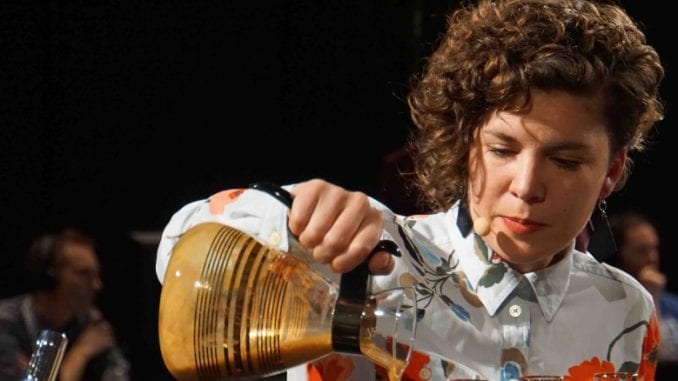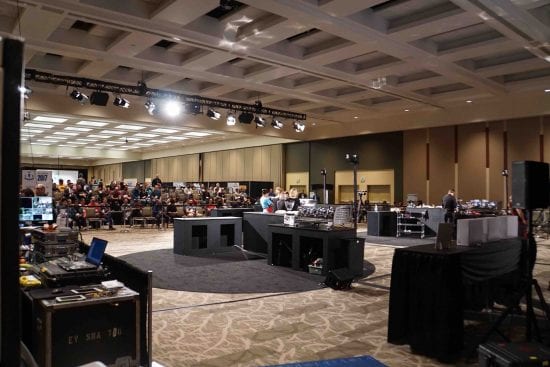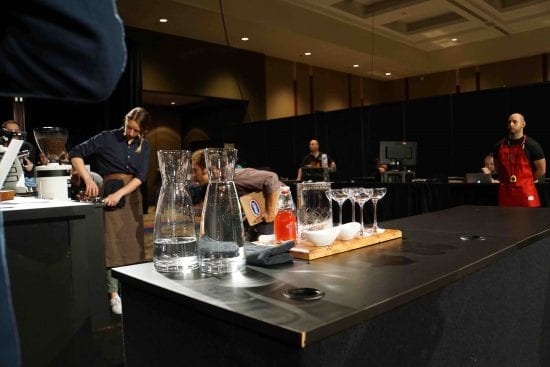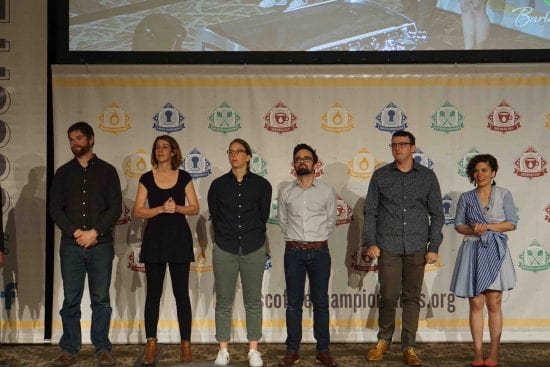
The SCA announces big changes to the 2018 competitions format, including a regional round, compulsory coffees, and fewer rules and regulations to enter competition.
BY ASHLEY RODRIGUEZ
BARISTA MAGAZINE ONLINE
Photos by Nate Gwatney
Over the last few years, the format of the United States Barista Championship has received some heat. When the regional format was discarded in favor of super-regional qualifying events (one in Kansas City in 2016, and two in 2017 in Knoxville and Austin), baristas bemoaned the dwindling number of spots to compete and the cost of travel to go to a regional aimed at being accessible to all competitors as opposed to a smaller regional more centrally located for a smaller group of competitors. The Specialty Coffee Association and the competitions committee heard these concerns and are rolling out a series of changes to the 2018 competition format.

The biggest change is an extra regional round: A handful of preliminary regional competitions are expected to take place between August and September of this year. “This August and September, depending on community interest, there will be three to six preliminaries across the United States, organized and hosted by local SCA campuses or member facilities. Hosts will offer compulsory versions of the Barista Competition and/or Brewers Cup,” an email from SCA states. In these mini-regionals, competitors will have seven minutes to present an espresso and a milk drink to two sensory judges and one technical judge, and the competitors will be given a compulsory coffee as opposed to bringing their own. Interested coffee companies can apply to be a regional host—there are fewer rules than hosting USBC or any of the qualifying events. The only thing companies have to provide is an SCA-certified head judge.

Top finishers at these regional events can earn spots into the qualifying events, which will mimic this year’s format. SCA will put on two events with 60 competitors each, with the top 18 at each event earning a spot at USBC. Some of the 120 spots (60 at each regional) will be given to the top finishers (it’s unclear how many spots will be saved—more information on this will be available when the regional hosts are announced) of each regional event. However, participation in a regional event is not required to enter the qualifying events. Instead, the regional events are meant to give competitors more opportunities to practice, and to remove some of the barriers many potential competitors face when they decide to compete, like the cost of travel, coffee, or wares. Competitors can also choose to only compete in the regional events if they don’t want to travel to the qualifying events or wish not to spend too much money on competition.

Although the qualifying events and the USBC will remain similar to the previous year, that doesn’t mean some of the changes proposed at the regional level won’t trickle up to the higher levels of competition. Right now, the competitions committee is eager to see how people adapt to these changes and if they help make competitions more equitable for more baristas. There’s no news yet on who will be hosting the regional events, but they will be happening by the end of the summer, which is just around the corner. If you’re interested in being a regional host, or just want to simply share your thoughts and concerns, please email competitions@sca.coffee.
You can learn more about the new competition structure by registering for and attending an information session being held on Friday, June 23.

